Book review: Love Wins
by Rob Bell
★★★★★
This is Bell’s controversial masterpiece about “heaven, hell, and the fate of every person who ever lived.” Love, says this internationally influential pastor, wins in the end … and nobody has to go to hell.
God wants all people to be saved. Will God get what He wants?
Of Bell’s works, I’ve read only this and Velvet Elvis, though I have three more in my review stack. I’ll be spreading them out over the next few months. I confess that too much Bell, with his colloquial rah-rah style, might push me off the deep end, but in Love Wins, the message overcomes the style and earns five stars. I also feel the book is very well organized, leading inexorably to a logical conclusion.
That said, this book does not probe any deep theological arguments. It’s far too short for that. It’s a common-sense approach to a troubling question: Can God be both loving and vengeful?
Actually, Bell’s book is chock full of questions! It makes you think about your perception of Jesus, of God, and of His eternal plan. Bell says, “Often times when I meet atheists and we talk about the god they don’t believe in, we quickly discover that I don’t believe in that god either.” When we hear that a certain person has rejected Christ, we should probably first ask, “Which Christ?” The antiscience, antigay one standing out on the sidewalk with his bullhorn, telling people that they’re going to burn forever? Or the one who invites everyone to share in his heaven?
Which invites another question. Which heaven? The one far away, a dream of eternal bliss, or the one Jesus constantly spoke of, here, now, on this earth? Bell’s “heaven” is very “earthy,” rightly recognizing that Jesus spoke not of a place but of an age … an age where God dwells with his people, on this earth. Bell is not denying an afterlife, he simply is putting the focus where Jesus did: the now.
But what about hell? Well, there’s plenty of hell on earth now, too. Surprisingly, not everyone prefers heaven. Love wins, and we get whatever we want. But over and over and over, God speaks of restoration … helping those who have slipped into hell back on their feet and back into heaven.
That’s God’s agenda. So here we are at a final question: Does this magnificent, mighty, marvelous God fail in the end?

Book review: God Is Red
by Liao Yiwu
★★★★★
Wow! Powerful stuff, here.
Liao is not a Christian, he’s a Chinese rebel. That is, he’s a critic of the Chinese regime, for which he has been imprisoned and his works have been banned. Says Liao, “I will continue to write and document the sufferings of people living at the bottom rung of society, even though the Communist Party is not pleased with my writing. I have the responsibility to help the world understand the true spirit of China, which will outlast the current totalitarian government.”
So, in this book, he takes on the topic of how Christianity flourished under the Communist banner. Martyrdom, underground house churches, religious persecutions … these are the sorts of topics you’ll find in this series of 18 essays. Many deal with the period of Chairman Mao and the Cultural Revolution.
This is not really a political book, nor is it evangelical. It is a reporters-eye view of Christianity where it doesn’t fit in. In learning about his topic, Liao attends a Eucharist celebration, interviews church leaders, visits the sites of persecution, and lets real people tell their stories. Warning: These stories are as disturbing as they are inspiring. Christianity under Red China looks like the first couple centuries under the Roman Empire all over again.
Was it worth it for those who endured? I’ll let you decide after you read the final interview with its entirely different flavor, of a new young 2010 convert to Christianity. A dry surprise awaits you.

Book review: Becoming, A Spiritual Journey
by Rev. Dr. Pamela Feeser
★★★★
I struggled in deciding on a rating for this one. For myself, I’d give it three stars; I just didn’t relate well. It’s a short little book, and even at that, it seems to lose a bit of focus toward the end and perhaps could have been even shorter. But for others, who have shared more of the pain that Pamela has (both physical and emotional), the book will prove inspirational and comforting, worthy of a five-star ranking. I settled on a compromise of four stars.
Rev. Feeser is opinionated but gentle as she shares the wisdom of a life still Becoming. This is a book for the heart, not so much for the head … a bit different from the sort of book I usually review. Yet it was a pleasant break, sometimes even delightful … and sometimes disturbing. Like Job in the Bible, Pamela endured a lot under God’s watchful eye. Like Job, she simply could never give up on Him. While her understanding and picture of God evolved over time, her love for the One Who Loved Her Into Being grew only stronger … overcoming periods of darkness which found her railing in anger at Him. In her love-hate relationship with the Creator, love won by a landslide, and this shared love is clearly her comfort and strength today.
“Bottom line, God, it’s you and me. I know we can do it.”
Spiritual living is characterized by creative chaos, insists Rev. Feeser. Yet within that chaos, her escape was music and poetic verse. Music appears to have grounded her, given her stability in a world of chaos. Over and over she found God hiding in the notes and the controlled breathing of playing wind instruments (Spirit = breath of God). I mention this because for all the writing I do about God, I know so very little about Him, and I think that for one person at least … God is music. I’m glad Pamela found Him there; we should all be so lucky.

Book review: Why Did Jesus, Moses, the Buddha, and Mohammed Cross the Road?
by Brian D. McLaren
★★★★★
We have just enough religion to make us hate but not enough to make us love one another. –Jonathan Swift
What does it mean to be a Christian in a multi-faith world? In a world that keeps shrinking, McLaren draws us back to Christian neighborly principles, encouraging respect and interfaith understanding, but without sacrificing our allegiance to Christ. While it may be true that fostering an us-versus-them atmosphere strengthens the walls and adds purpose to our lives, this does not mean it’s the only (or proper) way to remain strong in our faith. McLaren teaches a Christian identity that moves us toward people of other faiths in wholehearted love, not in spite of their non-Christianity identity and not in spite of our own Christianity identity, but because of our identity as a follower of God in the way of Jesus.
Anne Rice once proclaimed, “In the name of Christ … I quit Christianity and being Christian.” Many of us have felt the same frustration as we outgrew our oppositional tendencies and pondered what it really means to be Christian. McLaren calls it “Conflicted Religious Identity Syndrome,” this matter of opposing opposition, for it is opposition—standing not only for something but against something—which stabilizes our identity.
But if we jettison our strong/hostile Christian training, will we drift toward its opposite, a weak/benign faith? Yes, if we don’t direct our efforts! Weak faith is weak faith! So McLaren calls for strong/benevolent Christians. Contrary to the arguments of aggressive atheists today, the antidote to bad religion is not no religion, but good religion.
As I read back over my review, I see that I’ve used too many big words; I haven’t been very true to the flavor of the book. It actually is quite readable and satisfying, and I loved it.

Book review: John’s Gospel, The Way It Happened
As the publication date gets closer, I’m getting more excited about John’s Gospel, my sequel to Revelation. I have a few Advance Reader Copies remaining; if anyone is interested in providing a review, please contact me at lharmon@thewayithappened.com!
This early review is by an internet friend I met on a religious forum: Alan Vandermyden. He just opened a new blog at http://alponders.blogspot.com. Thanks, Alan!
_______________________________________________
Two or three years ago, Deepak Chopra’s Jesus left me with a new sense of Jesus as an historical person—not that Chopra’s book is in any way a definitive biography of Jesus, but in the sense that I began to see Jesus as a person, like each of us, with a story, as he was led to an understanding of his role and purpose in life.
Lee Harmon’s new book—John’s Gospel: The Way It Happened—led me more deeply into this story and into those of other individuals: those of Peter and Paul, and most particularly, of the apostle John. And, perhaps more to the point, it brought an historic perspective to the writing of the four gospels and Revelation. What was once a source of confusion and tension within my own being, as I desperately attempted to “make things fit” with each other and with my own religious understanding, now becomes a weaving together of stories—those of other persons also grappling to understand God and their role in life.
Lee simply tells a story that allows disagreement and differences of understanding between the writers of these books, as well as differences in understanding at different points in their lives—growth. An aged and dying John strives to convey his new understanding of a triumphant Christ of love—far different than the “militarily” victorious Jesus of his Revelation—to Matthew and a young, believing woman of Ephesus. Matthew defends explanations and interpretations he had penned in his gospel—events which “must have occurred” because the scripture prophesied them concerning the Messiah. He had to be born in Bethlehem. He had to be born of a virgin. Matthew does what we persist in doing today, as we attempt to interpret writings as a foretelling of future events, rather than understanding them as bringing relevant understanding to believers in their own times.
Lee accomplishes this without making others—anyone—“wrong.” People are simply struggling to understand events occurring around them, and their own role in life. This historical perspective encourages us to go beyond simply throwing our hands up in disgust, muttering “the Bible is just a bunch of contradictions anyway.” A door is opened, through which we can also enter in to the story and grapple with our own understandings. For me, the Bible is no longer required to be an absolute, an infallible document dictated from heaven; but neither is it just a mess, full of contradictions. It has become a living testament of individuals’ engagement with the being we call “God.”
Though Lee and I have never met, we share a similar heritage, having grown up in families that were active participants in a fellowship officially named (in N. America) Christian Conventions, but which is more commonly referred to by members as “the truth,” “the friends,” or, more simply, “meeting” (a reference to home–based worship/fellowship gatherings). While my (and Lee’s) discontinued association with the fellowship might by implication challenge some beliefs they hold, I see no reason to define them as “wrong” or “bad.” Believe Lee’s book invaluably shows us that we no longer need to so define those who hold a different opinion than we. Each of our opinions is formed within a specific vantage point—a culture, a set of experiences—and we gain much through listening to and accepting other stories. Lee’s writing points this out in respect to the Bible—that set of writings that has so powerfully influenced the world—but the lesson also applies to each of us, today, as we seek to bring meaning to our own experience.
I thank Lee for a powerful, yet easy–to–read book and the extensive research involved.
Book review: Evolution of the Word
by Marcus Borg
★★★★
This is a big book, 593 pages, but over half of it is a reprint of scripture. After an introduction, Borg goes book-by-book through the New Testament, providing a few pages of overview for each, primarily discussing its historical context, and then presenting the Biblical text. Borg’s contributions are a little sparse and offered without much argument, so if you’re looking for exhaustive commentary, that’s not his purpose.
Also, do not imagine that scholars have some kind of universal agreement about when each of the N.T. books were written! Borg humbly admits there is no consensus, and in places, admits his opinion differs from the majority. In general, Borg dates many of the books just a little later than I do. For example, he follows the recent trendy dating of Luke/Acts well into the second century, while I remain unconvinced and still date these two books around 85-95. And, of course, we won’t agree on Revelation, since in my own book I rely heavily on a historical-critical interpretation to place its date right around the year 80 CE, which differs from almost every New Testament scholar.
But while there’s no exact consensus, that’s not really the point. The point of Borg’s book is to portray how Christianity evolved in its earliest years, as evidenced in the writings we have in our Bible. Indeed, the New Testament itself is an evolutionary outgrowth of the Old Testament. Quite a bit of the discussion centers on Paul, and on the letters written in his name, as this is where the most serious change occurs over the span of the New Testament … issues like the role of women in the church and of how to regard Christian slaves like Philemon.
Overall, I enjoyed the book but found few surprises, and the reading went fast since I didn’t take time to reread all of the scripture.

Book review: My Universe, A Transcendent Reality
by Alex Vary
★★★★
The subtitle of this book is an “Atheist-Scientist’s Guide to God.” It’s broken down into five parts of two or three dozen short essays each, which were compiled and organized by Vary over a period of six years. Each essay leads fluidly into the next, however, so it’s not as if Vary is publishing an anthology; this is, rather, a defense of his particular view of reality … a reality that transcends the material cosmos into the transcendental universe. Vary takes what he calls a “rational approach” to God, along the lines of thinkers Bernard Haisch, Paul Davies and Jacob Needleman, and much of his book details his perception of body-soul-spirit. The mind of “God” (in which we, with our limited minds, share) resides outside the physical cosmos.
Vary’s writing is intelligent and he’s extremely well-read. He is a retired research scientist with NASA, and I have to be honest, here: He’s way over my head at times. Part three, the central portion of the book, is simply incomprehensible. I can speak somewhat knowledgeably about quantum entanglement, black holes, and particle-wave duality, but if asked whether Vary adequately argues his hypotheses (among them, an explanation of how the material somethingness of the cosmos arises from nothingness) or whether he has truly formulated a convincing proof of Fermat’s Last Theorem, I admit total bafflement.
A key part of Vary’s worldview includes what he refers to as Astrals, non-corporal beings that reside in the mesostratum. Spiritual manifestations with human-like traits, personalities, occupations and ambitions, who tinker in material affairs, fiddling with DNA, fine-tuning our evolution. How else do we explain how species seem to appear suddenly, fully formed and equipped with all sorts of specialized organs, then remain stable for millions of years? Yeah, I know, this stuff is out there, but once we dig below Vary’s tongue-in-cheek caricatures of our designers, he turns out to be quite serious. So, clearly, his is a controversial take.
And also a bit disturbing, since it implies that we humans, like the dinosaurs, are most likely still imperfect beings who will soon be discarded as non-working models while the DNA tinkering continues.
Honestly? I had a lot of fun reading this one. I highly recommend it for pleasurable reading and fascinating learning. But I don’t think I have room for Vary’s “religion.”

Book review: Revelation: The Way it Happened
by Lee Harmon
★★★★
A writer is forever learning. In this review by Goodreads reviewer “Phil,” I learned never to park things atop the ark (too informal, I assume), and to be more sensitive about Jewish facial features. I made both modifications in my “corrected copy.” (Seriously, I did! It’s my job to learn and avoid what offends people!)
From Phil:

It seems it has taken me a long time to read this book, but there were two factors – one, I enjoyed it so, that it gave me food for thought, and, two, a minister friend (not on Goodreads) was so captivated by my description of it, I had to lend it to him.
Pity the poor librarian who has to classify the book! It is neither exegetical commentary on the Book of Revelation nor an historical novel! (Official rules state, however, it must be classed as fiction.)
I might have given the book the full five stars, except for some “infelicities.”
For example, the Cherubim can be said to have been placed on the Ark of the Covenant, but “parked”?
And the description of Samuel’s deceased wife’s nose as “dainty … so contradictory to her Jewish heritage …” Seriously ??
Otherwise, I enjoyed this largely Preterist commentary on Revelation.
Book review: The Jewish Gospels
by Daniel Boyarin
★★★★★
Just when you think you’ve got it all figured out, along comes Daniel Boyarin, a professor of Talmudic Culture and Rhetoric at the University of California.
You think Christianity’s unique contribution to Judaism was the introduction of a god-man? Wrong. Could it be the idea of a suffering savior? Wrong again. Maybe that Jesus rejected Jewish dietary laws and Sabbath restrictions, freeing us from the Law? Hardly; Boyarin paints a very Jewish Jesus in his reading of the Gospels, certainly a Jesus who keeps kosher.
Christianity’s one claim to fame may be the insistence that the Messiah had already arrived, but that’s about the extent of its uniqueness. Otherwise, Christianity is a very Jewish offshoot of a Jewish religion. Boyarin draws from texts like the Book of Daniel and 1st Enoch to explain the title Son of Man (which, it turns out, is a much more exalted title than Son of God) and in turn to expose the expectation of many first-century Jews of just such a divine savior.
This is a fascinating, controversial book presenting a very different look at Jesus as one who defended Torah from wayward Judaic sects (the Pharisees), rather than vice versa. I don’t think the arguments are fully developed yet, but certainly Boyarin introduces “reasonable doubt” against traditional scholarship. Let the arguing begin.

Book review: The Searchers
by Joseph Loconte
★★★★★
Well, I screwed up this time. I picked up The Searchers from Booksneeze, and let it sit on my shelf for two months while I took care of other promised reviews.
Stupid me. This is a fantastic book, intelligent and raw. Raw, not in the vulgar sense, but in the lead-you-to-the-edge-and-curl-your-lip sense. Then it will draw you back from the edge, like the scent of marsh mellow cocoa by a warm fire. Combine all that with a captivating writing style, and you have a winner.
Two men walked side-by-side one day twenty centuries ago, heads bowed, on the way to Emmaus. A stranger appeared asking why they were so downcast, and they marveled at the stranger’s ignorance of what was happening in Israel. The rabbi Jesus, the hope of their nation, had been rejected by God’s appointed leaders and then brutally killed by the Roman Empire.
Loconte draws us back to this first-century image of a pair of bewildered and beaten men over and over as he discusses the faith-shaking events within Christianity over the years. In so many ways, religion does seem like the poison that many believe it to be. Where is God in all this confusion? As Loconte walks us through the insanity of our world today, with its suffering and wars and occasional inhumanities, we’re tempted to ask the same question. The Searchers is a book about finding “faith in the valley of doubt.” It is a journey, not a book which can be surface-scanned, but one that requires walking in the shoes of others.
Note that this is not an apologetic book. The one little attempt to help us believe in the historicity of the resurrection seemed to me incognizant of the first-century Christian atmosphere, but I won’t dwell on it, because argument is not the focus of the book. Hope is. As we zero in on the close of the book, we’re once again reminded of those two men and their solemn journey home on the Emmaus road. The moment came when their eyes were opened to see the Lord, and for joy, they rushed back to Jerusalem. Hope lives!

Book review: Velvet Elvis
by Rob Bell
★★★★
Harper One appears to be doing a reprint of Rob Bell’s works, and sent me a nice little stack of books. So I’m beginning with Bell’s Cinderella work, Velvet Elvis, published back in 2005. I had actually never read it before. Had heard it talked about, but never turned the cover. It turns out to be a good book, but I really didn’t enjoy it as much as I did Bell’s latest, Love Wins. I’ll review that one shortly.
Velvet Elvis is written in a style exactly like I expect the young mega-church pastor to preach: friendly and colloquial, somewhat meandering, common-sensical. I don’t quite get the “Velvet Elvis” part, so let’s ignore the title and just say his is common-sense Christianity. It’s not terribly controversial (it’s actually more conservative than I expected), and it’s not theologically probing, but it’s clear Bell can think for himself … or rather, he can unthink some of the stray ideas that have led many Christians away from simply living a Christian life. I absolutely love this observation early in the book about what happens when you try to follow Jesus:
Over time when you purposefully try to live the way of Jesus, you start noticing something deeper going on. You begin realizing the reason this is the best way to live is that it is rooted in profound truths about how the world is. You find yourself living more and more in tune with ultimate reality. You are more and more in sync with how the universe is at its deepest levels.
What is Bell talking about? He’s talking about what it means to be a disciple of a first-century Rabbi who sees potential in each of us, and calls us to live like him. He’s talking about what happens when you quit pushing your religion on your neighbors and dwell like Christians among them. He’s talking about what happens when you view God’s dream for mankind as one of him coming down to make his home with us, rather than us peering into the heavens with a forlorn hope of rapturous escape. He’s talking about compassion, goodness, simplicity, all the things that can make this world a better place for all of us.

Book review: Speaking Christian
by Marcus J. Borg
★★★★★
What is meant by our Christian language? How do we understand words like “redemption”? Borg reflects on the difference in meaning between liberal and conservative Christian thinking, even though the language is identical. Borg is quite liberal, and he refuses to turn the meaning of words that are special and meaningful to him over to a Christianity that he feels has strayed from the original, radical, this-worldly message of the first Christians.
Early Christianity was not focused on heaven or hell. An emphasis on the afterlife has turned Christianity away from its roots, and consequently, many of the concepts of the Bible have been modernized. A lot of the meanings of words we use as Christians differ so severely from person to person that it renders some of us speechless. We simply don’t know how to say what we mean. At least in America, when liberal Christians speak of faith, resurrection, even God, the conservative interpretation is so popular that we often can’t be understood.
The problem words are numerous. Saved. Born again. Mercy. Sin. Belief. (Borg suggests that a proper synonym for “believing” is “beloving.”) I’ve struggled mightily with this problem on various online forums, to the point where it’s tempting to simply give up on “speaking Christian.” This makes Borg’s book especially timely for me. So serious is the problem that some have concluded that Christian language is beyond redemption and needs to be replaced by language that actually communicates what we want to communicate. But Borg encourages us to hang in there. If we avoid the language of our faith because of uncertainty about what it means, we grant a monopoly on it to those who are most certain about its meaning. That would be unfortunate, for the language is extraordinarily rich, wise, and transformative. Moreover, if we neglect or reject biblical and Christian language because of its common current-day meanings, a serious question arises: Can we be Christian without using the language of Christianity?
Borg says no. To abandon the language of Christianity would mean leaving behind something that has been profoundly nourishing. Religions are like language. Ceasing to speak French would mean no longer being French. Being Christian means “speaking Christian.”

Book Review: The Bible Experience
by Zondervan
★★★★★
I don’t really review audio-only books, but I should make an exception to tell you about The Bible Experience, just in case you’ve never heard of it. This is a reading of Today’s New International Version of the Bible. If you’ve got a road trip planned, this should be your companion.
It employs a cast of a couple hundred actors in the star-studded cast—Samuel Jackson, Angela Bassett, and Cuba Gooding Jr. to name a few—and sound effects that bring ancient times alive. This is just a reading of the Bible, nothing more, yet the written Word is somehow elevated into an absolutely stunning audio experience. No book of any genre that I’ve listened to compares to this, and certainly no audio Bible version compares. This is the one you want.
Pick up the Gospel of John, lie down in a meadow, and put on your ear buds for a couple hours. Or tune in to Revelation and listen to the angels sing. If you’re looking for meaningful Christmas presents, then after you buy my books, buy this! 

Book review: Messiahs, Volume 1
by Christian Nseka
★★★
This is the first of a three-volume series about messiahs: Christ, the Messiah of 2000 years ago; Reverend Moon, the appointed Messiah of this age; and the many messiahs around us. In fact, everyone is a messiah. The book is well-written and easy to read, apologetic in nature, but it didn’t seem convincing enough to me to expect Bible-readers to embrace the ideas within. Thus, a three-star rating.
Nseka is a member of the Unification Church, and writes from that perspective. He believes literally in the Bible story; in particular, the story of the Garden of Eden and the Fall of mankind. This theme—the restoration of mankind from the Fall—pervades this entire volume. Adam and his wife Eve sinned, and history up to this point has been a redemption from sin.
Here’s how it works: Jesus is the Messiah, capital M, but the mission of the Messiah is to bring harmony. To establish the Kingdom of Heaven. Given that this has not yet happened—indeed, Satan has only grown stronger than ever—we may conclude that Jesus didn’t entirely fulfill the role of Messiah. For one thing, both Adam and Even sinned, and Jesus could only absolve Adam’s portion of the original sin; both a male and female messiah are required to cover them both. Jesus represents only the second Adam. Had Jesus married, thus anointing a wife to serve as the female Messiah, perhaps he could have completed the messianic requirements. He didn’t, so we need a Second Coming.
Luckily, Reverend Moon is married. His first marriage didn’t work, but thankfully he found another wife, so the two of them can finish the job begun by Jesus. Jesus himself passed the torch to Rev. Moon, who serves as the Second Coming of Jesus. Rev. and Mrs. Moon are the True Parents, establishing a family and lineage under God in the Second Advent. Salvation comes through the marriage ceremonies for which Rev. Moon has become famous. Through the Blessing of a Moon-endorsed wedding (he plays matchmaker, selecting the wife for each man), humanity is able to conceive children within the lineage of God—children born without original sin, like Jesus.
And there you have it. Today, the Unification Church and the newly-inaugurated Kingdom of Heaven has grown considerably, and the providence of restoration has reached a point where Rev. Moon no longer needs to match people. So great has the movement grown, that in 2010 he retired from that service and instructed candidates on how to pick their own spouses.
No one has outperformed Jesus save for the Rev. Sun Myung Moon (p. 163).

Book review: Elijah, the Last Prophet
by Mickey Mullen
★★
I met Mickey, this book’s author, on a public forum at Goodreads.com, where he insisted on spouting the most insane, impossible story of his Christian conversion. God gave him a new heart. No, I mean it, a real one. God sucked the old one out and replaced it with a new blood pump.
Mickey doesn’t know it, but I watched him for months, telling his story and enduring the ridicule. I can’t believe his story … I’m just not wired to swallow that kinda thing … but whatever the heck happened to Mickey that day, it left an impression. He may have been a hell raiser before his conversion, but today he’s an absolute saint for what he puts up with on Goodreads.com, and never loses his cool. My curiosity sparked, and I offered to review a book he had written.
Turns out he’s more than a saint. He’s the prophet Elijah, and he’s got a message for us. For one thing, we shouldn’t bother reading most of the New Testament. Stick to the Gospels and stay away from the Satanic influence of Paul. Mickey’s writing style is a bit unorthodox, and the punctuation questionable, but I’m not sure I’d have it any other way … somehow it sets just the right tone.
I was captivated for about 40 pages, while Mickey recounted stories of his childhood. Setting the stage, I assumed, for what was to come: a miraculous conversion experience. Reading the book is a bit like sitting on a log around a campfire, listening to grandpa reminisce. But the storytelling grew old, and I began to wish he’d get on with the supernatural stuff, so I was more than ready when the book turned preachy. Finally, we must be getting to the point! Okay, Mickey, I’ll swear off Paul, if you’ll tell me what happened to you! But the preachy stage came to an end, and the reminiscing began again. Along the way I learned how to drive safely, how to roast hot dogs, I learned just about everything except what I hoped. Mickey’s miraculous baptism by the Holy Ghost blew by in a couple sentences without fanfare, and the storytelling began to meander again without direction until it simply petered out on the final page as if he ran out of breath and decided to call it a night.
Mickey, you seem like a fascinating guy, it would be fun to stoke the campfire together, but your book doesn’t go anywhere.

Book review: What is the Bible?
by Rev. Anne Robertson
★★★★
This little booklet serves as a basic textbook to introduce the Bible in the Dickinsen Series Program of the Massachusetts Bible Society. It’s intended for class session, recognizing that there may be two levels of learners in each class: some may be taking the course out of general interest only, while others may wish to pursue a Certificate of Biblical Literacy, requiring more in-depth exercises, and earning Continuing Education Units. The four books in the course include:
[1] What is the Bible?
[2] Introducing the Old Testament
[3] Introducing the New Testament
[4] The Bible in Context (a look at the culture and surrounding events of the various times in the biblical narrative)
Book one (today’s topic) is sort of a “What’s the big deal?” treatment, introducing the two Testaments, what’s hidden in the Bible, how it was put together, why there are so many translations, and why people argue so vehemently over words like “inerrant” and “inspired.” Above all, this introduction stresses tolerance and understanding for the different ways of reading scripture. It encourages you to examine your own beliefs objectively so that other opinions about the Bible can be appreciated (remember, it’s written to be used in class discussion), and it serves as a great lead-in to the coming volumes. Robertson’s writing is engaging, written with humor and lots of little anecdotes. It reminds me a little of the “Dummy” instruction series. But as friendly as it is, it’s like any textbook: If ya don’t do the exercises, ya don’t get the benefit.

Book review: Living The Questions, the Wisdom of Progressive Christianity
by David M. Felten and Jeff Procter-Murphy
★★★★★
Latin re-ligio: To relink, to reconnect.
Buy this book! If I do a “best of 2012” summary this January, I guarantee this one will be near the top. Heart and head both feel satisfied as I turn the last page.
This is what progressive Christianity is all about. It will toy with your emotions, lift you to the heights of compassion, and fill your soul with awe for the beauty and mystery of life we share. God is in this book, until you set the book down and discover He has wiggled out of its pages and into your soul. Perhaps God was inside you all along, waiting to be reawakened?
Many of us do need reawakening; religion has become a turn-off for many. In no other area of life is the denial of progress held up as a virtue. But according to Felten and Procter-Murphy, stagnation, not change, is Christianity’s deadliest enemy. Vital faith is dynamic, flowing, and moving. Progressive Christianity, by its very name, is about progress. Rethinking the meaning of Christology, atonement, and the Incarnation is part of the journey. Losing interest in the Rapture is a necessary side effect.
“Living the Questions” is an enigmatic title, and the book begins with this insight: “To not ask questions is tantamount to forfeiting one’s own spiritual birthright and allowing other people’s experience of the Divine to define your experience.” It ends with the reminder that “those who embrace mystery are free to interpret the Divine in new and fresh ways.” In the pages between, however, we travel back in time to the Jesus of history, a man of vision and compassion, and a this-worldly concern largely ignored by the creeds of the religion that sprouted in his name. The essence of Jesus’ ministry might be distilled down into one word: compassion.
Then we’re reintroduced to God who, through the scriptures, is Mother, Father, the Wind, a Rock, and finally just Love. God, says John Shelby Spong (who along with Fox and Crossan is quoted liberally in these pages) is the life power itself, the power of love itself, the “Ground of Being.”
One final note: I’m not a poetry reader, but the occasional sprinkling of poetry by Cynthia Langston Kirk was mesmerizing … I suspect in part because the atmosphere of the book primed me to appreciate the poetic.

Book review: Jesus Have I Loved, but Paul?
by J. R. Daniel Kirk
★★★★★
This one gets off to a bit of a slow start, but finishes strong. With an enigmatic subject like Paul, and a provocative title like this one, I expected a more pointed discussion. It’s only when we reach the midpoint that the really controversial topics emerge: women’s role in the church, slavery, homosexuality, marriage and divorce, etc.
Kirk begins his book by confessing his early ambivalence toward Paul. Only after much study, and by recognizing that Paul’s teachings and Jesus’ teachings do steer toward one another, did he come to appreciate Paul’s slant. This acceptance appears to have come at a cost: Kirk began to realize that not only did Paul tend toward Jesus in his teachings, but Jesus tended toward Paul!
For example, Jesus says we should not judge one another. But is that the whole story? Worry about the log in your own eye, and ignore the speck of dust in your neighbor’s? Hardly. Jesus says get the log out of your eye so that you can see to help your brother get rid of his problem. If we condemn Paul for encouraging what looks like strict judgment of others (1 Cor. 5:12-13), we should remember Jesus’ admonition to recognize others by their fruits and beware.
Paul may best be understood under the lens of Storied Theology. By telling the story of mankind, from Adam and Eve through Paul’s day, he fits the Gentiles into the cosmic plan of God. He brings non-Jews into the fold, makes them feel like they belong, and defines their role as full participants.
Kirk writes as a studied believer, meaning his perspective is most definitely that of a practicing Christian, yet he’s been around the block long enough to realize that every question about the Bible has a dozen scholarly answers … half of them legitimate. For example, Kirk acknowledges that many of the Pauline letters may be pseudonymous, and he focuses more intently on the universally recognized authentic letters, yet he doesn’t press the issue.
Kirk doesn’t sit on the fence when it comes to interpreting the words of the Bible, though. Paul doesn’t pull punches, and neither does Kirk. Still, this is a respectful and thought-provoking book.

Book review: God, Freedom, and Evil
by Alvin Plantinga
★★★★
How do I rate a book that will bore most of you but titillate the rest? Half way between two stars and six stars, I guess.
I’m secure in my status as a religion nerd, so I’ll admit I loved it. This is an introduction to philosophical apologetics, a short little book that can be read in a couple hours, and understood in five or six hours. Philosophical reflection, Plantinga assures us, is not that different than just thinking hard. It’s an excursion into the joy of logic … for the fun of it, not necessarily to reach any meaningful conclusions. He spends half the book discussing the problem of evil, and the other half on natural theology. Thus half of the book presents a case against God and half attempts to prove he exists. In the second half, Plantinga briefly introduces the Cosmological Argument and the Teleological Argument, and then spends the rest of the book on the Ontological Argument.
Plantinga’s argument against the problem of evil is fascinating yet unsatisfying, and his discussion of the ontological argument is equally fun but equally unconvincing … like one of those puzzles where you know there’s something wrong and can’t quite place your finger on it.
One note: Do not try to read an electronic version! The constant referring backward to numbered arguments will be very frustrating without a paper copy.

Book review: Clear Faith
by Susan Stover
★★★★
Did Jesus rise bodily from the dead? Yes. No. Maybe. This event, the central tenet of Christianity, is a faith-reinforcer for some and a stumbling block for others. It needn’t be the latter, nor do any of the unbelievable stories of our faith tradition need to get in the way. Imagine a simple faith that looks beyond even the Resurrection, finding the ambiguity in even its message acceptable.
Do you find some of the stories and explanations in the Bible a bit extreme? Take heart. Clear Faith doesn’t need atonement. It doesn’t need an afterlife reward. It doesn’t need an understanding of the Trinity, or even a Jesus any bigger than the one uncovered by Historical Jesus scholars. Clear Faith is just an unassuming, uncomplicated, uncluttered trust in God.
Which God? Is there even a real God outside our brains? We just don’t know. Stover insists that believing in God is a personal choice, and explains: “To me, God is appropriately regarded as a mystery. Hope. Infinite possibility. Compassion—oneness with all that is. Pure, unlimited surrounding LOVE. God surrounds and dwells within us, and I choose to cherish that belief and let it shape my way of living and being.”
Don’t buy this book looking for originality or deep, theological probing. It’s short and sweet, to the point, and reliant upon the deeper research of other scholars. Stover liberally quotes the writings of Marcus Borg, Karen Armstrong, and Robin R. Meyers, so if your favorite Liberal Christian is among this list, you’re in good hands.
This book will resonate with many, many people. It’s possible that some will find it comforting to read, simply to reinforce that they are not alone in their “spiritual-but-not-religious” mindset, but in my opinion the book’s greatest value is as a way for progressive/liberal/SBNR Christians to share their journey with their conservative family. Stover’s approach is not at all heavy-handed but gentle and explanatory, so it’s a simple way of communicating what so many of us feel.


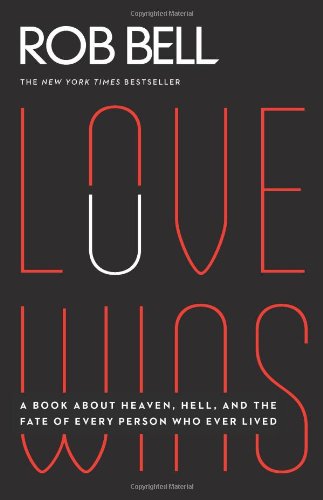

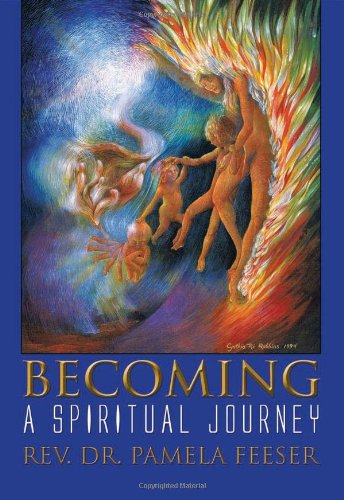

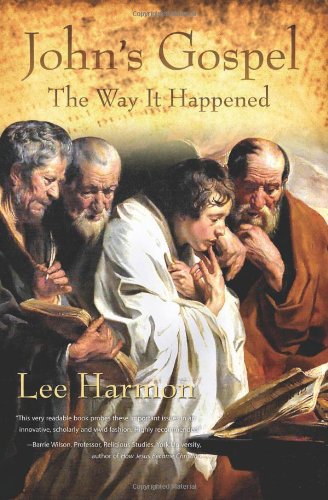
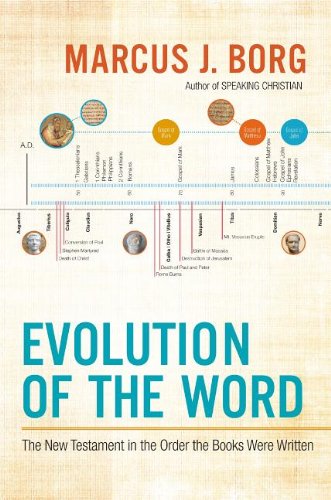
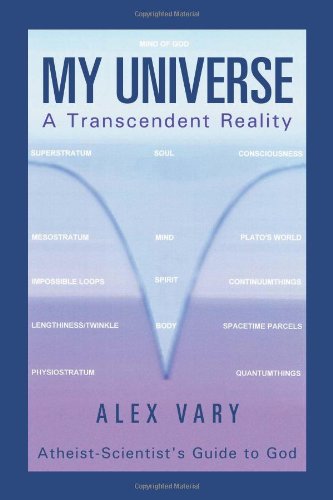
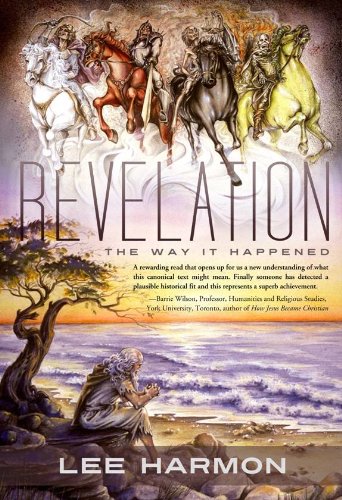




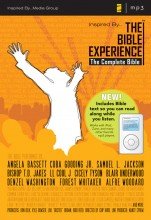
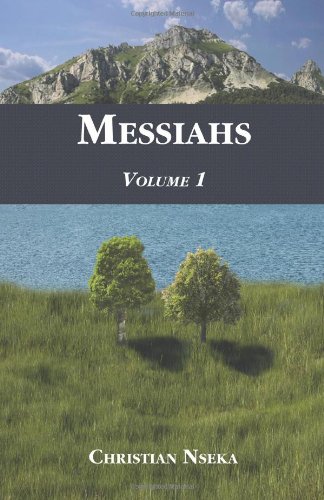
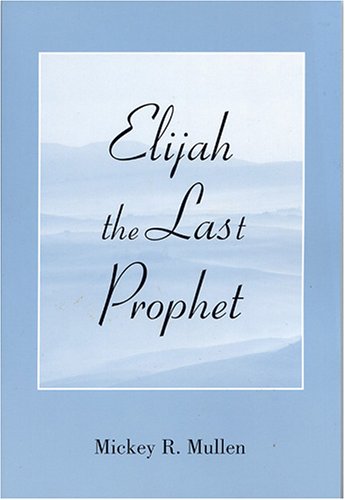
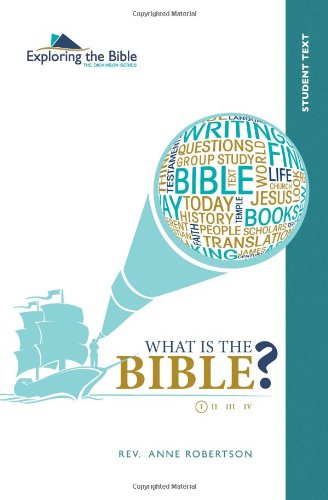
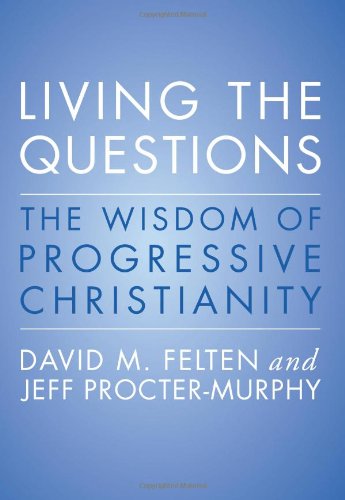
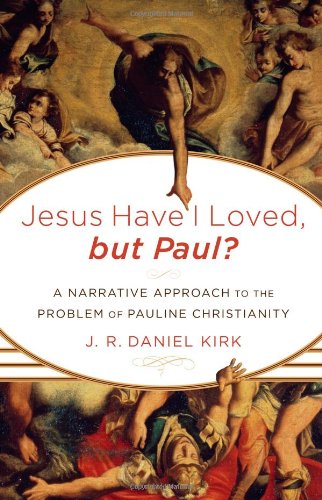
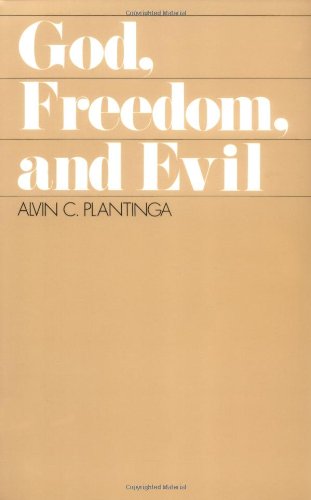
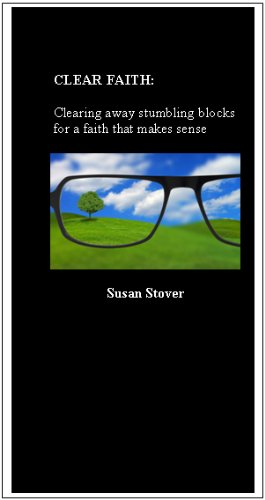









 354 Circles
354 Circles
 603 Goodreads Friends & Fans
603 Goodreads Friends & Fans

 Hello! I'm an author, historical Jesus scholar, book reviewer, and liberal Christian, which means I appreciate and attempt to exercise the humanitarian teachings of Jesus without getting hung up on any particular supernatural or religious beliefs.
The Bible is a magnificent book that has inspired and spiritually fed generations for thousands of years, and each new century seems to bring a deeper understanding of life’s purpose. This is true of not only Christianity; through the years, our age-old religions are slowly transforming from superstitious rituals into humanitarian philosophies. In short, we are growing up, and I am thrilled to be riding the wave.
I avidly read all thought-provoking religion titles. New authors: I'd love to read and review your book!
Hello! I'm an author, historical Jesus scholar, book reviewer, and liberal Christian, which means I appreciate and attempt to exercise the humanitarian teachings of Jesus without getting hung up on any particular supernatural or religious beliefs.
The Bible is a magnificent book that has inspired and spiritually fed generations for thousands of years, and each new century seems to bring a deeper understanding of life’s purpose. This is true of not only Christianity; through the years, our age-old religions are slowly transforming from superstitious rituals into humanitarian philosophies. In short, we are growing up, and I am thrilled to be riding the wave.
I avidly read all thought-provoking religion titles. New authors: I'd love to read and review your book!
 Hi! While Lee writes the articles and reviews the books, I edit, organize, and maintain the blog. The views expressed here are Lee's but I'm his biggest supporter! :-)
Hi! While Lee writes the articles and reviews the books, I edit, organize, and maintain the blog. The views expressed here are Lee's but I'm his biggest supporter! :-)
Connect With Me!